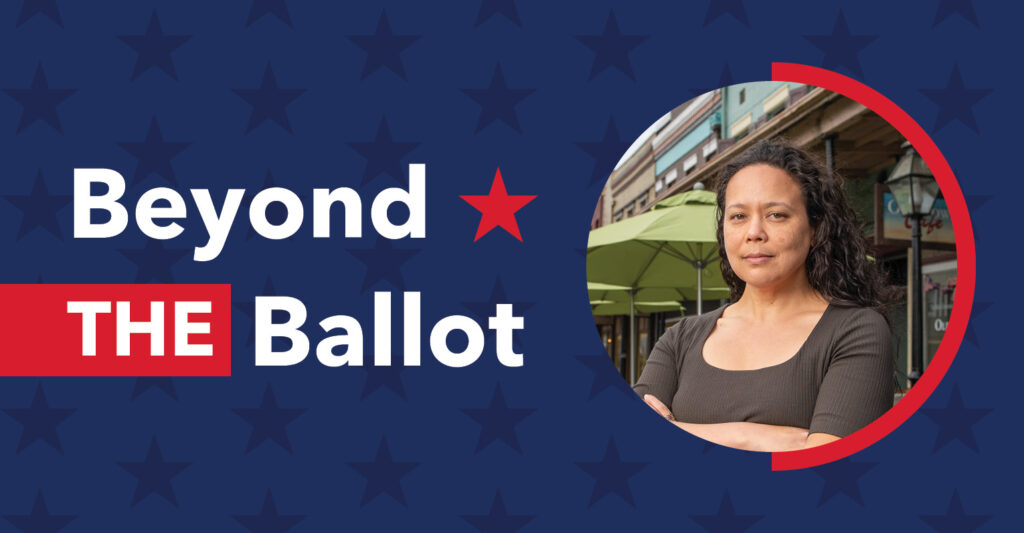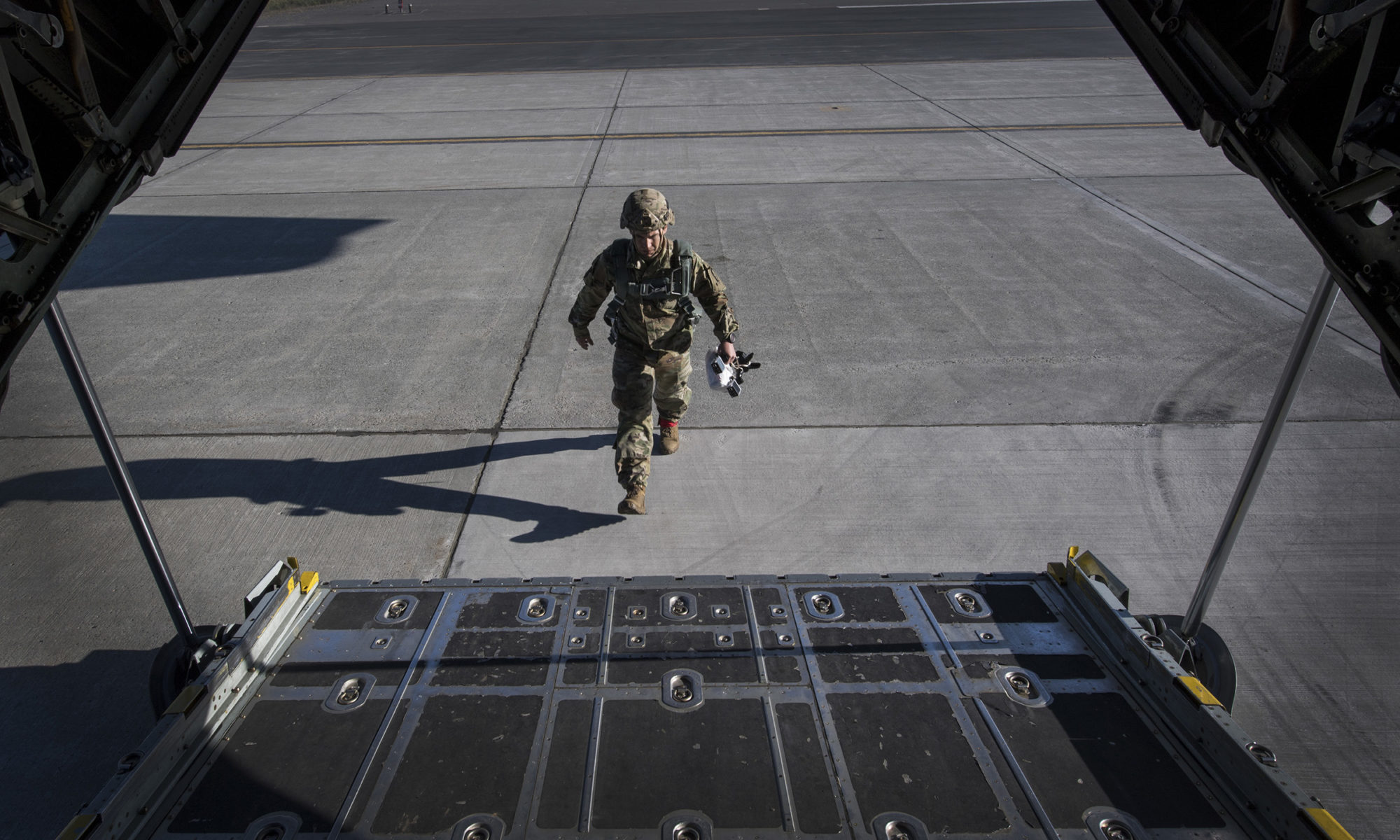
By Morgan Thomas, Policy Associate
Driven to serve, Nevada County Clerk-Recorder and Registrar of Voters Natalie Adona started off her career in elections as a poll worker while pursuing her bachelor’s degree at the University of California, Berkeley. Then, she heard that the City and County of San Francisco had temporary positions for voter registration processers. Deciding to further pursue work in elections, Adona applied.
At her interview, Adona was asked about her interest in elections. She described her experience as a poll worker and her work as a research assistant on poll worker training with the Election Administration Research Center at the UCB campus. Although she applied to be become a voter registration processer, the election’s manager offered an alternative suggestion.
“They said well, you did all this research didn’t you? Why not train poll workers?”, Adona said.
She accepted the position and went on to begin her first foray into election administration.
“Something clicked in my mind that said oh, I get it now. This is cool! I think I’ve found what I want to do,” Adona said.
The excitement came to a sudden halt when the housing crisis of 2008 started to affect local government offices. Many county offices started downsizing, eliminating the possibility that Adona’s position could become permanent. This led Adona to pursue internships in elections research with nonprofits, such as Project Vote and Maplight.org. Adona went on to earn her Juris Doctor from the American University Washington College of Law in 2014, her Master of Public Administration from the American University’s School of Public Affairs in 2015, and began working with Democracy Fund in Washington, D.C.
Following her grandfather’s death in 2019, Adona moved back home to Nevada County, California, where she assumed a new role as an Assistant Clerk-Recorder/Registrar of Voters under Greg Diaz. In the last years of his tenure, Diaz tried to convince Adona to run for office as the Nevada County Clerk-Recorder/Registrar of Voters.
Adona repeatedly said she was “not the running type.” But given the challenges to election administration and the loss of institutional knowledge in the state, Adona filed to run anyway.
After a grueling campaign, Adona was elected on June 7, 2022. Running for office “was one of the most difficult things I’ve ever done,” Adona said.
After years of working in the election space, Adona witnessed many changes, including the implementation of a statewide voter registration database in California. “While most states use a top-down method, where the state filters voter registration information to the counties, California is a bottom-up state, where counties keep a local voter registration database that filters up to the state level,” Adona Said.
As a result, “there is a constant flow of data, meaning that we have to focus on synchronization to ensure the data is the same between the counties and the state,” Adona said.
Another change was the addition of same-day voter registration — both in-person and online. Allowing for online same-day voter registration expanded access to UOCAVA voters who often face unique voting challenges abroad.
“It didn’t seem fair that our UOCAVA voters couldn’t register the same day simply because they couldn’t physically do so in person,” Adona said. “That big adjustment had a very positive impact.”
Coming from a military family, Adona believes it is essential to ensure that overseas voters are granted the same opportunity to vote. However, reaching overseas voters can be challenging for small offices.
“My county has about 500 registered UOCAVA voters and although that’s not a large number, it’s still difficult to determine what exactly they need,” Adona said. “Currently, we are trying to make a trifold that includes information on ballot tracking and other voting information to include in their voting materials that get sent out.”
Adona noted the increased difficulty in communicating voting requirements to overseas voters.
“It’s already difficult explaining the rules to domestic voters, so we’re hoping that condensing down the information will help ensure that our UOCAVA voters know what’s available to them,” Adona said.
Another adjustment that Adona, and many election officials, have observed over the years is the increased complexity of elections. Upon returning to California, Adona noted changes to the primary system, as well as in the voting equipment and technology that were used.
“Elections have become more complex and, thus, require more technical expertise than they used to,” Adona said.
While some might see these changes as negative, Adona views them in a positive light.
“With new equipment comes new system certification standards, new regulations for conducting elections and new training,” Adona said. “Our election officials and poll workers are becoming more and more knowledgeable, which adds to the enhanced security of elections over the years.”
In recent years, elections have been bombarded by misinformation and disinformation campaigns, leading to distrust in elections and election officials. As professionals and experts in their field, election officials are tasked with reassuring the public that voting equipment and technologies are secure despite the claims leveled against them.
“If I could put something on a list of things I never thought would happen, it would be California becoming a hotbed for misinformation and disinformation,” Adona said. “I never imagined misinformation and disinformation would have such a negative impact on elections in my state and across the country.”
Combating misinformation and disinformation can be challenging for any election office. Offices have struggled in recent years with worker retention due to increased concerns regarding their personal safety, which is one of the negative, downstream impacts that false information has had on elections.
“My office is very small; we only have three full-time staff and around fifteen temporary staff,” Adona said. “When misinformation and disinformation hits our office, it really puts a strain on the staff and our daily operations.”
Adona said funding is the number one resource to help address the challenges associated with worker retention and election safety.
“Funding, funding, funding! Misinformation and disinformation have riled people up in such a way that it’s becoming more and more dangerous,” Adona said. “Funding is critical to help address not only physical safety but also the safety of the ballots and the overall well-being of the workers themselves. Elections are a fundamental element of democracy and need to be treated as critical infrastructure which requires money.”
Although there are many challenges that come with her position — security, tackling misinformation and disinformation, and high worker turnover — Adona still speaks fondly about elections.
“I have the best job in the world!” Adona said. “Seeing how excited people are to tell me that they voted brings me so much joy. Elections are one of the greatest and most important jobs in the world. Even on my worst day, I wouldn’t want to do anything else.”

